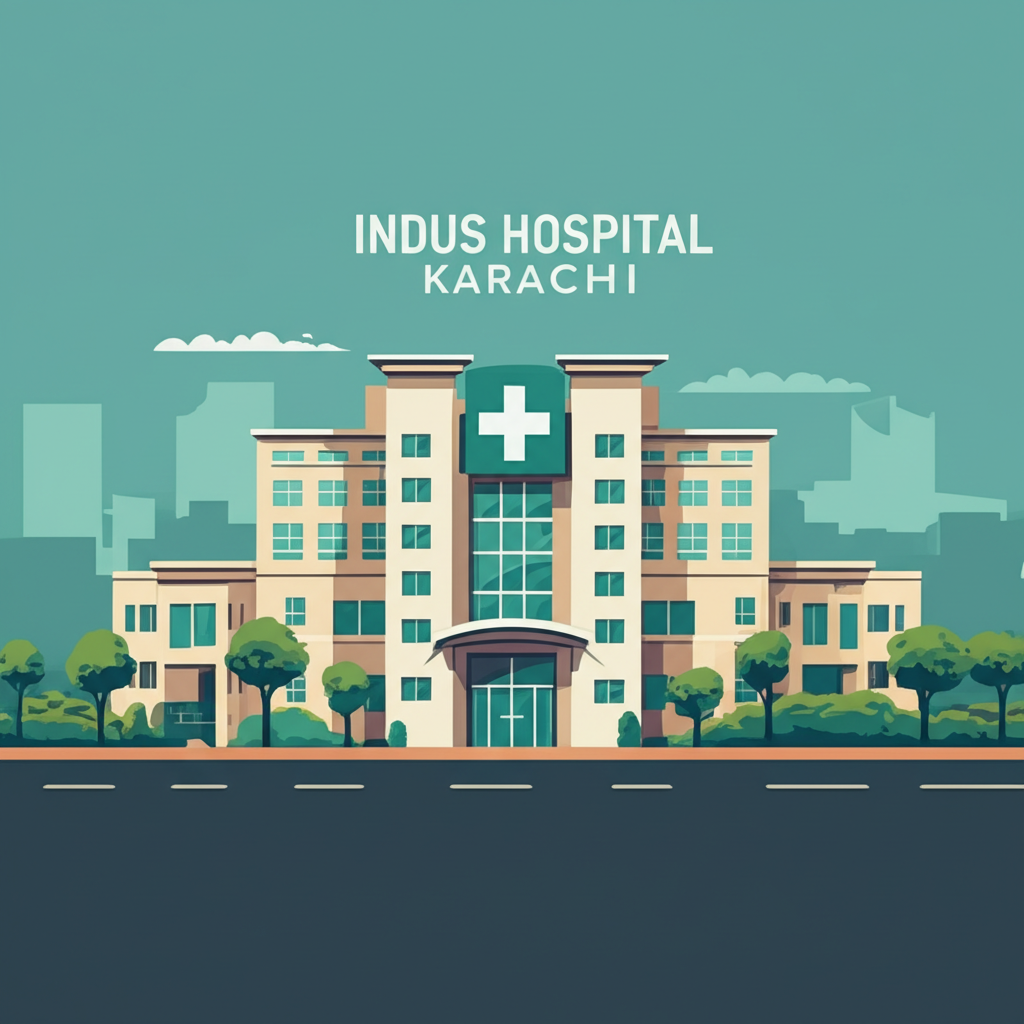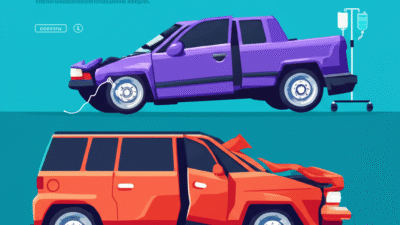A Lifeline of Compassion: How The Indus Hospital Karachi Transforms Lives Through Zakat
In a nation grappling with the dual challenges of a burgeoning population and an overstretched healthcare system, access to quality medical care remains a distant dream for millions. Pakistan’s public health infrastructure often struggles to meet demand, while private facilities, though excellent, are largely inaccessible to the vast majority due to prohibitive costs. It is within this critical gap that The Indus Hospital & Health Network (TIH), a beacon of hope born in Karachi, has emerged as a revolutionary force, providing absolutely free, high-quality healthcare to all who need it, without discrimination.
At the very heart of TIH’s extraordinary mission lies the powerful concept of Zakat – an Islamic obligatory charity that forms the third pillar of Islam. For millions of Muslims worldwide, Zakat is not merely a donation but a spiritual obligation, a purification of wealth, and a means of fostering social justice. The Indus Hospital has meticulously crafted a transparent, Shariah-compliant, and highly effective model for utilizing Zakat funds, transforming them into tangible, life-saving medical care for the most vulnerable segments of society. This article delves deep into the ethos, operational excellence, and profound impact of The Indus Hospital Karachi’s Zakat model, exploring how it has become a trusted and transformative avenue for charitable giving, earning it a prominent place on the global philanthropic map.
The Dire Need: Healthcare Disparities in Pakistan
Before understanding the impact of TIH, it’s crucial to grasp the landscape it operates within. Pakistan faces significant health disparities. A large portion of its population lives below the poverty line, with limited or no access to basic health services. Public hospitals are often overcrowded, under-resourced, and unable to cope with the immense patient load. Simultaneously, the private sector, while offering advanced medical treatments, is financially out of reach for the majority.
This creates a vicious cycle: illness pushes families deeper into poverty, as they sell assets or take on crippling debt to pay for medical emergencies. Preventable diseases become chronic, and treatable conditions turn fatal due to delayed or inadequate care. Children, mothers, and the elderly are particularly vulnerable. It was against this backdrop of widespread suffering and systemic inadequacy that a group of dedicated philanthropists and medical professionals envisioned a different path – a path paved with compassion, expertise, and the unwavering belief that quality healthcare is a fundamental human right, not a privilege.
The Genesis of a Dream: The Indus Hospital & Health Network
The journey of The Indus Hospital began in 2007, with a single, state-of-the-art tertiary care hospital in Karachi. Founded by Dr. Abdul Bari Khan and his dedicated team, the vision was audacious: to build a hospital that would offer every medical service, from primary care to complex surgeries, completely free of charge. This was not merely about charity; it was about establishing a benchmark for quality, dignity, and equity in healthcare.
From its humble beginnings, the Indus Hospital Karachi has grown exponentially, evolving into The Indus Hospital & Health Network (TIH), a sprawling network of over 12 hospitals and numerous primary care centers, blood centers, and public health initiatives spread across Pakistan. This expansion reflects an organic response to the overwhelming need, driven by the generosity of donors and the relentless dedication of its staff. Every facility, every doctor’s visit, every diagnostic test, every surgery – from a simple flu shot to a complex organ transplant – is provided without a single bill ever being issued to the patient. This "no bill" policy is the cornerstone of TIH’s commitment to dignity and equitable access.
Zakat: The Spiritual Foundation of TIH’s Mission
At the heart of TIH’s financial sustainability and its ability to maintain its "no bill" policy is the judicious and principled utilization of Zakat. Zakat is one of the five pillars of Islam, an annual charitable contribution required of adult Muslims who possess wealth above a certain threshold (Nisab). Its purpose is to purify one’s wealth, support the poor and needy, and redistribute resources within the community. The Quran explicitly outlines eight categories of people eligible to receive Zakat, and the provision of healthcare for the poor unequivocally falls under these categories, particularly "Fuqara" (the poor) and "Masakeen" (the needy).
For Muslims, fulfilling the obligation of Zakat is an act of worship, a testament to their faith, and a profound expression of social responsibility. However, choosing a trustworthy and impactful recipient for Zakat can be a significant concern. Donors seek assurances that their sacred charity will be utilized effectively, transparently, and in strict accordance with Islamic principles. This is precisely where The Indus Hospital Karachi has built an unparalleled reputation.
The Indus Hospital’s Zakat Model: A Paradigm of Trust and Transparency
The Indus Hospital has meticulously developed a Zakat model that stands as a benchmark for transparency, accountability, and Shariah compliance. This rigorous approach ensures that every penny of Zakat received directly translates into life-saving care for those who are most deserving.
1. Shariah Compliance and Oversight:
TIH understands the immense spiritual significance attached to Zakat. To ensure absolute adherence to Islamic principles, the network has established a dedicated Shariah Compliance Committee. This committee, comprising esteemed Islamic scholars, oversees the entire process, from patient eligibility assessment to fund utilization. Their role is to:
- Validate Zakat Eligibility: Ensure that all patients receiving Zakat-funded treatment meet the criteria of "Fuqara" or "Masakeen" as defined by Islamic jurisprudence.
- Segregation of Funds: Oversee the strict segregation of Zakat funds from Sadqah (voluntary charity), Lillah (general donation), and other operational funds. This is crucial for maintaining the sanctity of Zakat.
- Guidance on Expenditure: Provide expert guidance on how Zakat funds can be expended, ensuring they are used directly for patient care, including medical treatment, diagnostics, surgeries, medication, and rehabilitation services for eligible patients.
2. Rigorous Patient Eligibility Assessment:
Not every patient at TIH receives Zakat funds. While all patients receive free care, a stringent financial assessment process is in place to determine which patients qualify for Zakat support. This process involves:
- Detailed Socio-economic Profiling: Social welfare officers conduct thorough interviews and background checks to ascertain the patient’s income, assets, family size, and financial stability.
- Verification of Need: Documentation and field visits (where necessary) are used to verify the patient’s inability to afford medical treatment elsewhere.
- Focus on the Most Vulnerable: The system prioritizes those who are genuinely destitute, ensuring that Zakat reaches the truly needy.
3. 100% Utilization for Patient Care:
One of the most compelling aspects of The Indus Hospital’s Zakat model is its unwavering commitment to ensuring that 100% of Zakat funds are utilized directly for patient treatment. This means:
- No Administrative Overhead: Zakat funds are not used for administrative costs, staff salaries, infrastructure development, or maintenance. These operational expenses are covered by other funding streams, primarily Lillah and Sadqah donations.
- Direct Impact: Every Zakat rupee directly covers the cost of a surgery, a course of medication, a diagnostic test, or a consultation for an eligible patient. This direct link between donation and impact provides immense reassurance to Zakat payers.
4. Transparency and Accountability:
TIH upholds the highest standards of transparency and accountability.
- Audited Financials: The network’s financial statements are independently audited by reputable firms, ensuring meticulous record-keeping and proper utilization of all funds, including Zakat.
- Regular Reporting: Donors often receive updates and reports on the impact of their contributions, demonstrating the tangible difference their Zakat makes.
- Digital Traceability: Modern systems are employed to track donations and their deployment, enhancing accountability.
This meticulous approach distinguishes The Indus Hospital Karachi Zakat program, making it one of the most trusted avenues for fulfilling this sacred obligation. Donors can have full confidence that their Zakat is not only being spent according to Shariah but is also being leveraged with maximum efficiency to save lives and alleviate suffering on a massive scale.
How Zakat Transforms Lives: Impact in Action at TIH
The impact of Zakat at The Indus Hospital is not just theoretical; it is visible in the thousands of lives touched, healed, and transformed every single day. Zakat funds empower TIH to provide a comprehensive spectrum of medical services, ensuring that no patient is ever turned away due to financial constraints.
1. Emergency and Critical Care:
Life-threatening emergencies often strike without warning, and the cost of immediate, intensive care can be catastrophic. Zakat funds enable TIH’s emergency rooms to operate 24/7, providing rapid response, advanced trauma care, and critical medical interventions for accidents, heart attacks, strokes, and other acute conditions.
2. Specialized Treatments:
Many complex and life-altering conditions require highly specialized and expensive treatments. Zakat support allows TIH to offer:
- Cancer Treatment: A dedicated cancer hospital within the network provides chemotherapy, radiation therapy, and surgical oncology, offering hope to patients who would otherwise have no access to such vital care.
- Organ Transplants: TIH is one of the few centers in Pakistan performing kidney and liver transplants free of cost, a medical marvel made possible by philanthropic support, including Zakat.
- Cardiac Care: Advanced cardiac surgeries, angioplasties, and other interventions for heart disease are routinely performed, saving countless lives.
- Maternal and Child Health: From safe deliveries and neonatal intensive care to pediatric surgeries and vaccinations, Zakat ensures that mothers and children receive the care they need, breaking the cycle of preventable mortality.
3. Diagnostics and Surgeries:
The cost of diagnostic tests (MRI, CT scans, advanced pathology) and major surgeries can be exorbitant. Zakat funds cover these essential services, allowing for accurate diagnoses and necessary surgical interventions that would be financially impossible for most patients.
4. Medication and Rehabilitation:
Long-term medication for chronic illnesses, expensive post-operative drugs, and comprehensive rehabilitation services (physiotherapy, occupational therapy) are also covered, ensuring holistic recovery and improved quality of life.
5. Community Health and Preventive Care:
Beyond tertiary care, TIH also invests in primary healthcare and preventive programs, funded through general donations, but benefiting from the overall network’s stability. These initiatives include vaccination drives, health education, and maternal health programs in underserved communities, aiming to prevent illness before it requires expensive hospital intervention.
The sheer scale of TIH’s operations is staggering. Annually, the network caters to millions of patient visits across its facilities. Each of these visits represents a story of relief, recovery, and renewed hope, directly underpinned by the collective power of Zakat. The impact is not just on individual patients but on entire families and communities, as healthy individuals can work, children can attend school, and the burden of disease is lifted.
Beyond Karachi: A Network of Compassion Across Pakistan
While the flagship hospital in Karachi remains a symbol of excellence, The Indus Hospital’s vision extends far beyond the city limits. The Indus Hospital & Health Network (TIH) has strategically expanded its reach to various provinces and remote areas of Pakistan, bringing its model of free, quality healthcare to underserved populations.
This network includes hospitals in various cities, specialized centers for specific diseases, and a robust primary care program that serves as the first point of contact for many rural communities. This expansion is critical in a country where geographical barriers often prevent access to advanced medical facilities. By establishing a presence in these areas, TIH is addressing regional disparities and ensuring that the transformative power of Zakat benefits a broader spectrum of the Pakistani population.
The network approach also allows for economies of scale, shared expertise, and a more efficient allocation of resources. It strengthens the overall public health infrastructure of Pakistan, contributing to a healthier, more productive society. This commitment to national impact further solidifies TIH’s position as a leading philanthropic organization.
Why Choose The Indus Hospital for Your Zakat? An E-E-A-T Perspective
For any donor, especially those fulfilling a sacred obligation like Zakat, the decision of where to contribute is paramount. The Indus Hospital & Health Network consistently demonstrates adherence to the E-E-A-T principles (Experience, Expertise, Authoritativeness, Trustworthiness), making it an exemplary choice.
-
Experience: With over a decade and a half of dedicated service, TIH boasts extensive experience in delivering high-quality, free healthcare on a massive scale. Its growth from a single hospital to a national network is a testament to its proven operational capabilities and understanding of the healthcare landscape. This experience translates into efficient patient management, effective treatment protocols, and sustainable growth.
-
Expertise: TIH is home to highly qualified medical professionals, state-of-the-art medical technology, and an integrated healthcare model that covers prevention, diagnosis, treatment, and rehabilitation. Its expertise is evident in its ability to manage complex cases, perform advanced surgeries, and maintain international standards of care within a charitable framework. The meticulous Zakat management process, guided by Islamic scholars, further highlights its expertise in ethical and Shariah-compliant philanthropy.
-
Authoritativeness: The Indus Hospital & Health Network is recognized as a leader in philanthropic healthcare in Pakistan and beyond. Its "no bill" policy, transparent Zakat utilization, and extensive network have earned it widespread respect and numerous accolades. It stands as an authoritative voice on sustainable charitable healthcare models and social responsibility in the medical sector. Its official status as a registered non-profit organization, coupled with its consistent delivery, reinforces its authoritative standing.
-
Trustworthiness: Perhaps the most crucial factor for Zakat donors, TIH’s commitment to trustworthiness is unwavering. The rigorous Shariah compliance committee, the 100% utilization of Zakat funds for direct patient care, the transparent auditing processes, and the clear segregation of funds all build immense trust. Donors know their Zakat is in safe hands, being used precisely as intended by Islamic law, to alleviate suffering and restore health to the truly deserving. The emotional connection derived from patient success stories further cements this trust, showing tangible outcomes of their contributions.
In a world where accountability is often questioned, The Indus Hospital offers a refreshing model of integrity and impact, ensuring that every contribution to TIH Zakat delivers maximum benefit to those who need it most.
The Future Vision: Sustaining and Expanding the Circle of Compassion
The journey of The Indus Hospital is far from over. The healthcare needs of Pakistan continue to grow, and TIH is committed to expanding its reach, enhancing its services, and embracing innovation. The vision for the future includes:
- Further Expansion: Bringing free, quality healthcare to even more remote and underserved areas of Pakistan.
- Specialized Centers of Excellence: Developing more specialized centers for critical diseases like cancer, cardiac ailments, and infectious diseases.
- Research and Development: Investing in medical research to find sustainable solutions to prevalent health challenges in the region.
- Public Health Leadership: Continuing to play a leading role in public health initiatives, disease prevention, and health education.
Achieving this ambitious vision will continue to rely heavily on the sustained generosity of donors, particularly those who choose to channel their Zakat through The Indus Hospital. Every Zakat contribution is an investment in a healthier, more equitable future for Pakistan.
Conclusion: Your Zakat, Their Lifeline
The Indus Hospital & Health Network, especially its flagship facility in Karachi, stands as a powerful testament to what can be achieved when compassion meets competence, and faith translates into action. Its unique model of providing completely free, high-quality healthcare, underpinned by a rigorously transparent and Shariah-compliant Zakat mechanism, has made it a symbol of hope for millions.
By choosing to give your Indus Hospital Zakat, you are not just fulfilling a religious obligation; you are directly empowering a system that saves lives, restores dignity, and builds healthier communities. You are ensuring that a child with a treatable illness gets the care they need to thrive, a mother receives safe delivery, and a breadwinner can return to work, breaking the cycle of poverty and disease.
In a world often defined by challenges, The Indus Hospital Karachi shines as a beacon of solutions. It demonstrates that with collective effort, unwavering dedication, and the sacred power of Zakat, quality healthcare can indeed be a right for all, not a privilege for the few. Your contribution is more than just money; it is a lifeline, a prayer answered, and a future reclaimed.
How to Donate Your Zakat to The Indus Hospital:
To contribute your Zakat and become a part of this transformative mission, please visit the official website of The Indus Hospital & Health Network or contact their donation helpline. They provide various secure and convenient methods for Zakat payment, ensuring your sacred charity reaches the most deserving. Your Zakat can truly save a life.




